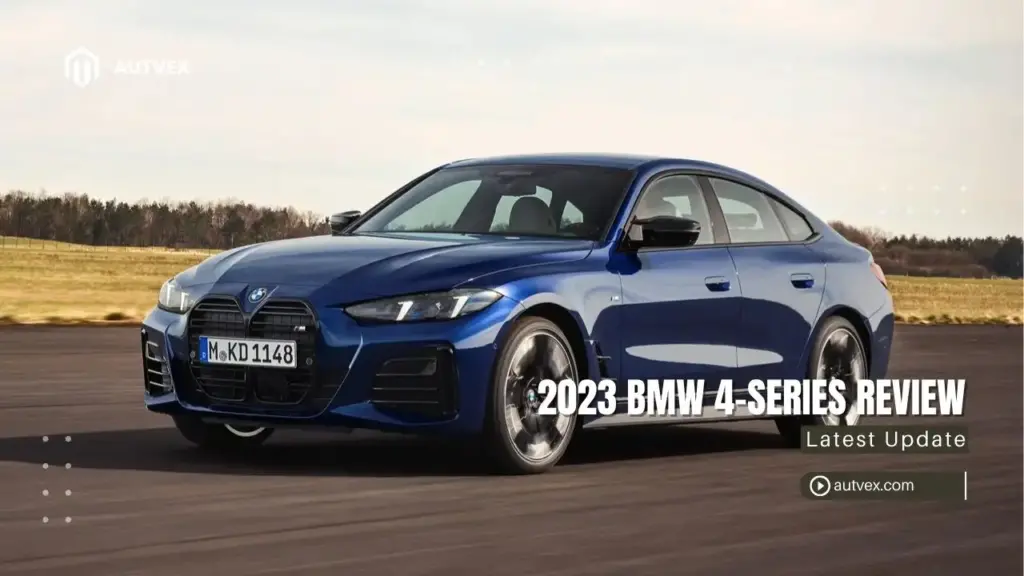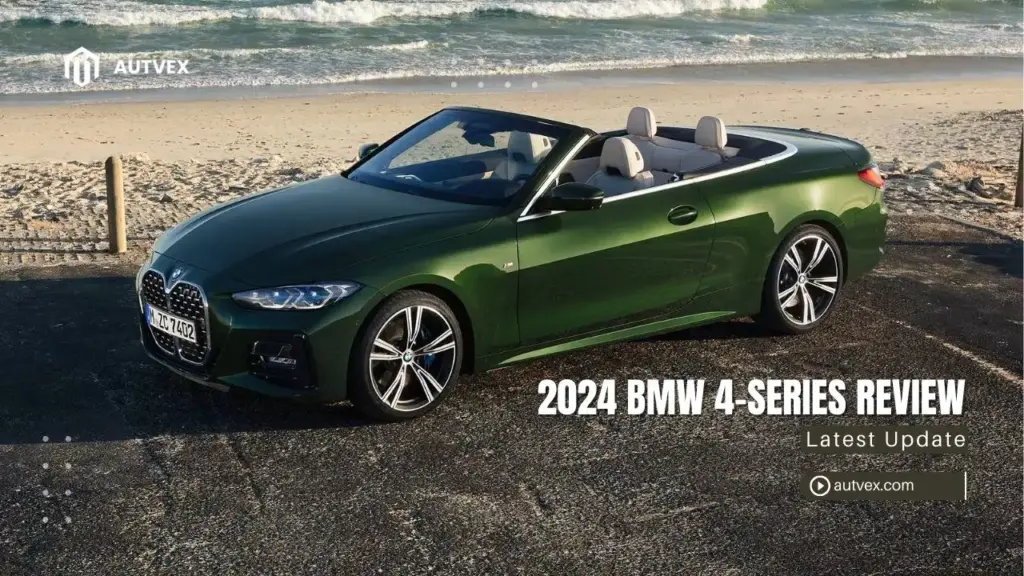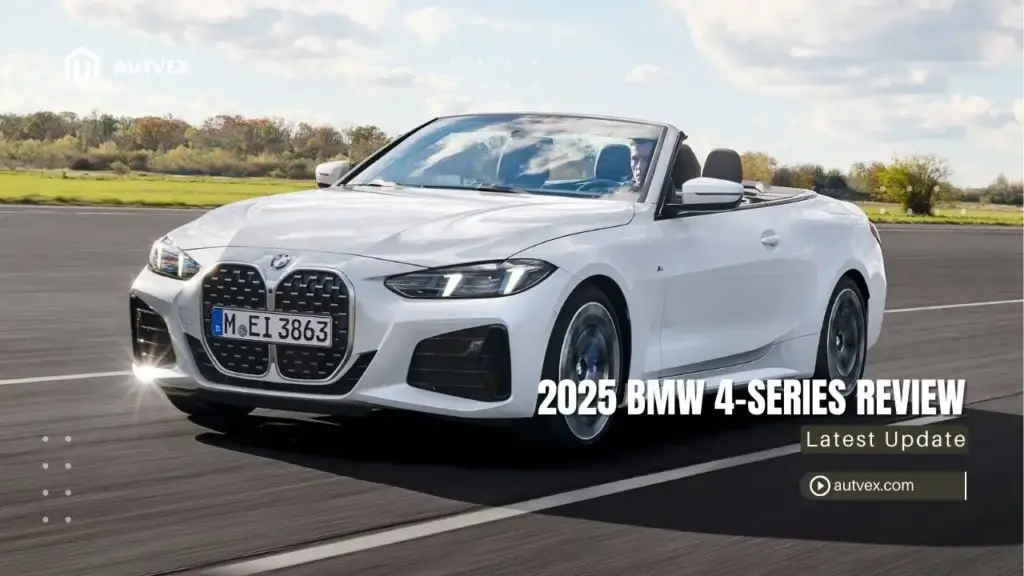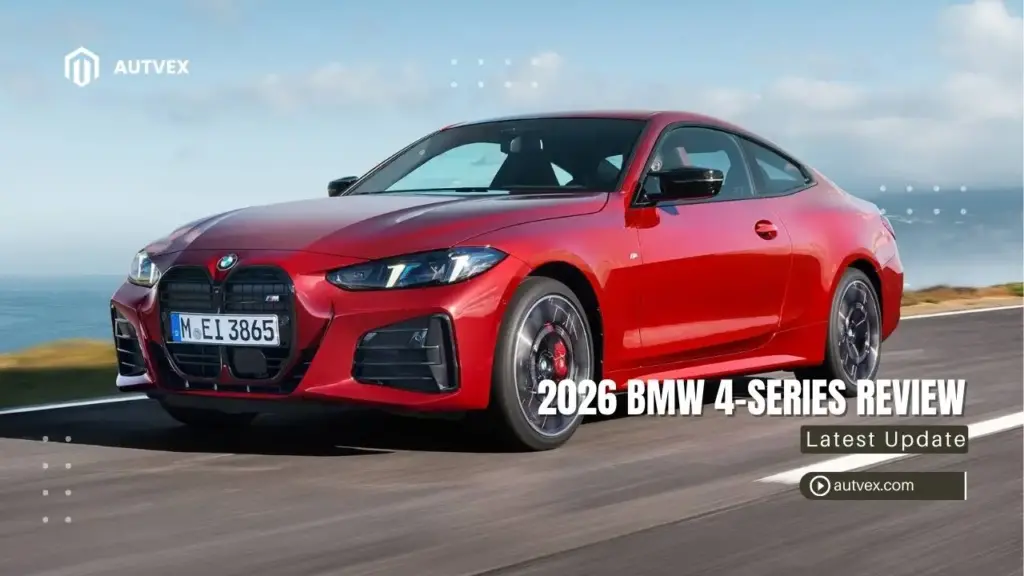You may also like:
The 2023 BMW 4-Series remains a solid luxury coupe choice in 2025, representing the third year of the current generation with proven reliability and strong used market availability starting around $31,000 for well-maintained examples[1]. This model year features no major updates but benefits from mature technology and refined powertrains, offering 255 horsepower in the 430i and 382 horsepower in the M440i configuration[2]. Consumer Reports predicts average reliability with a J.D. Power predicted reliability score of 85 out of 100, though the model has experienced 2 recalls[3]. While the BMW 4-Series faces strong competition from the Genesis G70 and Audi A5, it maintains appeal for buyers prioritizing BMW’s distinctive styling and driving dynamics over pure value[4].
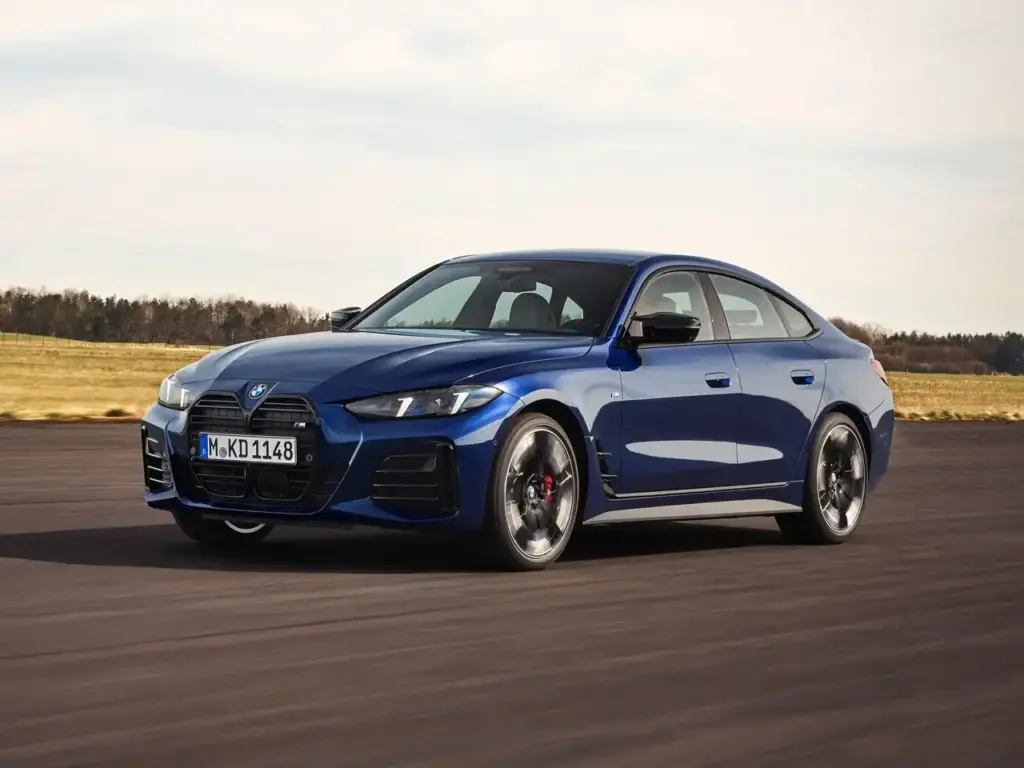
2023 BMW 4-Series Overview & What You Need to Know
Key Model Year Position & Market Context
The 2023 BMW 4-Series occupies the third year of the current generation that debuted in 2021, representing a mature and refined iteration without significant updates[2]. This positioning creates advantages for buyers seeking proven technology and established reliability patterns while avoiding first-year issues.
The 2023 model year received no major mechanical or technology updates, maintaining the same powertrains, iDrive 7 infotainment system, and exterior design as previous years[2]. This stability means buyers can confidently assess long-term ownership based on existing owner experiences and reliability data.
2023 Model Year Benefits:
- Proven reliability patterns from three years of production data
- No first-year technology issues with mature iDrive 7 system
- Established service procedures with BMW technicians familiar with systems
- Strong used market availability with varied mileage and pricing options
- Current generation styling without immediate obsolescence concerns
In the current used car market, 2023 models represent an optimal balance between modern features and depreciation, typically priced $15,000-$20,000 below original MSRP depending on mileage and condition[1].
Body Style Options & Trim Levels
The 2023 BMW 4-Series offers three distinct body configurations designed to meet different luxury buyer preferences and lifestyle requirements[2]. Each variant maintains identical powertrains and technology while providing unique styling and practical advantages.
| Body Style | Original MSRP | Current Used Price Range | Key Features |
|---|---|---|---|
| Coupe 430i | $48,395 | $31,000-$42,000 | Classic 2-door sports car design |
| Convertible 430i | $55,895 | $38,000-$48,000 | Power soft-top with reinforced chassis |
| Gran Coupe 430i | $50,895 | $33,000-$44,000 | 4-door fastback with enhanced practicality |
| M440i Variants | $60,345+ | $42,000-$55,000 | Performance-oriented with inline-six engine |
The Gran Coupe variant provides the best balance of style and practicality, featuring four doors while maintaining coupe proportions. This configuration appeals to buyers who want distinctive styling without sacrificing rear passenger access[2].
Target Buyer Profile & Competition Overview
The 2023 BMW 4-Series targets affluent professionals and driving enthusiasts who prioritize style and performance over maximum practicality[2]. This demographic typically includes buyers aged 30-55 with established careers seeking vehicles that make lifestyle statements while providing engaging driving experiences.
Ideal Buyer Characteristics:
- Income level: $60,000-$100,000+ annually for comfortable used ownership
- Age demographic: 30-55 years with established lifestyle preferences
- Priorities: Design distinction, technology integration, driving dynamics
- Usage patterns: Daily commuting with recreational weekend driving
- Household situation: Singles, couples, or empty nesters
The luxury coupe segment in 2025 remains competitive, with the Genesis G70 offering superior value proposition and the Audi A5 providing more conservative styling. However, the BMW maintains advantages in driving dynamics and brand prestige that appeal to enthusiasts[4].
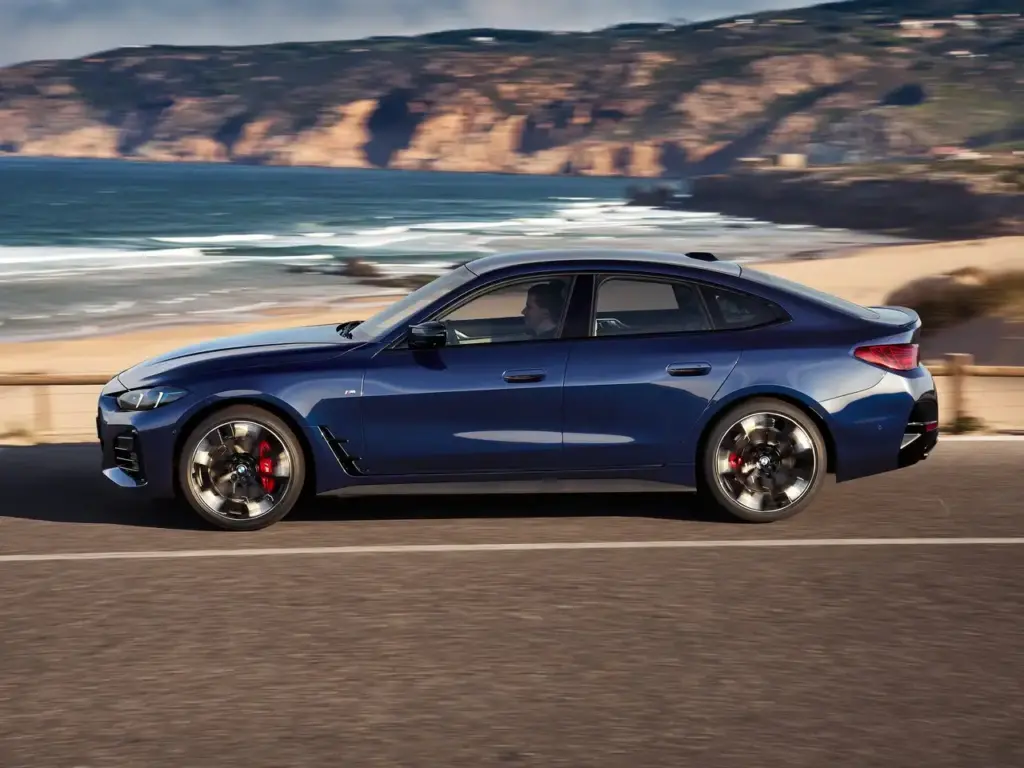
2023 BMW 4-Series Engine Performance & Specs
430i 2.0L Turbo Four-Cylinder Analysis
The base 430i engine delivers compelling performance for American driving conditions while maintaining reasonable fuel economy for the luxury coupe segment[2]. BMW’s TwinPower turbocharging technology ensures responsive acceleration from low RPMs, making daily driving enjoyable and highway merging effortless.
430i Engine Specifications:
- Displacement: 2.0-liter turbocharged inline-4 cylinder
- Power output: 255 horsepower @ 5,000-6,500 RPM
- Torque: 295 lb-ft @ 1,450-4,800 RPM
- 0-60 mph acceleration: 5.5 seconds (RWD), 5.2 seconds (xDrive)
- Fuel economy: 25 city / 34 highway / 28 combined MPG[2]
- Fuel requirement: Premium unleaded (91+ octane recommended)
Real-world driving reveals the 430i engine provides smooth power delivery throughout its rev range, though it lacks the distinctive character of BMW’s inline-six engines. The turbocharger delivers adequate boost for typical American driving scenarios while maintaining reasonable fuel costs.
M440i 3.0L Turbo Inline-Six Performance
The M440i showcases BMW’s celebrated turbocharged inline-six engine, delivering significantly enhanced performance that justifies its premium pricing over the 430i[2]. This powerplant represents the performance pinnacle of the standard 4-Series lineup, providing smooth acceleration and distinctive acoustic character.
| Performance Metric | M440i Specification | Real-World Benefit |
|---|---|---|
| Power output | 382 horsepower | Strong highway acceleration capability |
| Torque | 369 lb-ft | Responsive low-end power delivery |
| 0-60 mph | 4.4 seconds | Sports car-level acceleration[2] |
| Fuel economy | 24 city / 32 highway | Reasonable for performance level |
| Engine character | Inline-six smoothness | Distinctive BMW acoustic signature |
| Premium fuel | Required (91+ octane) | Higher operating costs consideration |
The inline-six engine provides notably smoother power delivery compared to the four-cylinder, with a broader torque band that makes highway driving effortless and engaging during spirited driving sessions.
Transmission & Drivetrain Options
Both engine variants pair exclusively with BMW’s refined 8-speed automatic transmission, providing seamless shifts and optimal gear ratios for performance and efficiency[2]. The transmission adapts to driving style through multiple selectable modes, ranging from economy-focused to sport-oriented settings.
Drivetrain Configuration Features:
- Standard transmission: 8-speed automatic with manual paddle shifters
- xDrive all-wheel drive: Optional system providing enhanced traction (+$2,000)
- Driving modes: Eco Pro, Comfort, Sport, and Sport+ settings
- Launch control: Standard on M440i models for consistent acceleration
- Electronic differential: Limited-slip functionality on M440i variants
- Sport suspension: Available M Sport setup with adaptive dampers
The handling characteristics distinguish the 4-Series from the mechanically similar 3-Series sedan, with retuned suspension, wider rear track, and more aggressive steering calibration creating a sportier driving experience[2].
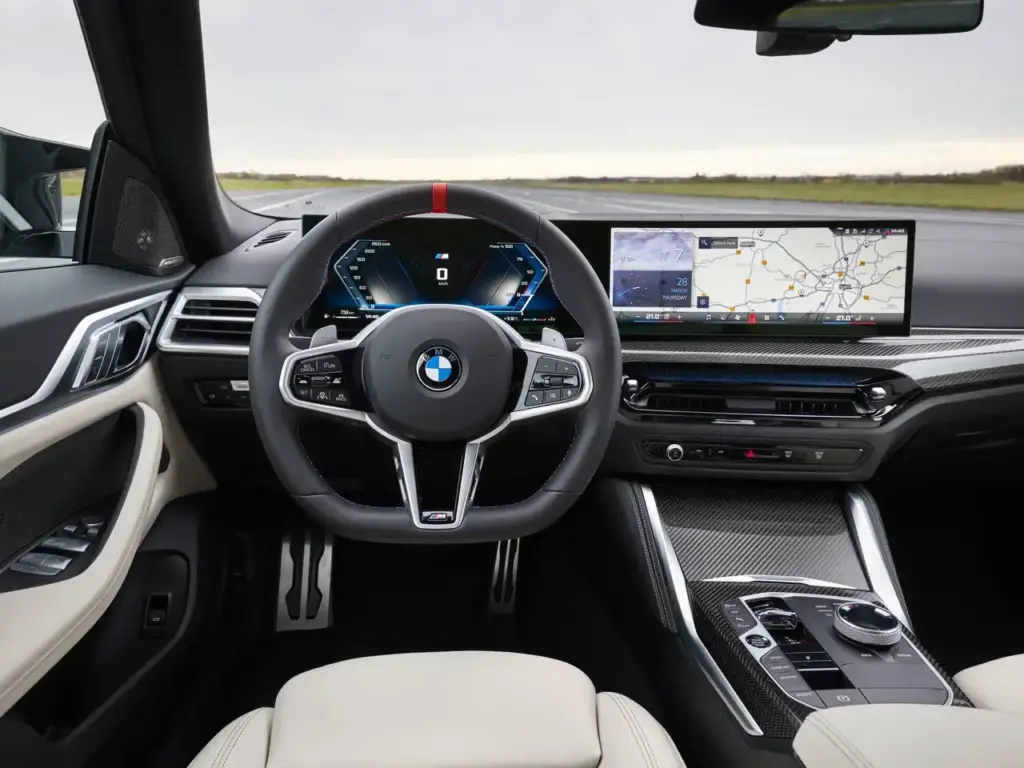
2023 BMW 4-Series Interior Features & Technology
Cabin Design & Space Assessment
The 2023 4-Series interior closely mirrors the 3-Series sedan design but adapts to coupe proportions with considerations for style over maximum space[2]. Front passengers enjoy generous accommodation with supportive seating and premium materials, while rear passengers face typical coupe constraints.
Interior space varies significantly by body style, with the Gran Coupe offering meaningful improvements in rear accessibility through four doors. Understanding these limitations helps buyers align expectations with intended usage patterns[2].
Interior Space Comparison by Body Style:
| Measurement | Coupe | Convertible | Gran Coupe |
|---|---|---|---|
| Front headroom | 38.5 inches | 37.8 inches | 38.5 inches |
| Front legroom | 42.0 inches | 42.0 inches | 42.0 inches |
| Rear headroom | 35.7 inches | 35.1 inches | 37.1 inches |
| Rear legroom | 32.0 inches | 31.4 inches | 33.7 inches |
| Cargo capacity | 12 cubic feet | 8.8 cubic feet | 12 cubic feet |
Premium materials include standard synthetic leather upholstery with multiple color options, complemented by ambient lighting and quality trim pieces throughout the cabin that maintain BMW’s luxury standards.
iDrive 7 Infotainment & Technology Systems
The 2023 model features BMW’s iDrive 7 operating system, which represents mature technology with established functionality and user interface design[2]. While not the latest iDrive 8 system found in newer models, iDrive 7 provides comprehensive features and proven reliability.
Technology System Specifications:
- Standard display: 8.8-inch central touchscreen with iDrive 7 software
- Upgraded option: 10.3-inch display with enhanced graphics capability
- Instrument cluster: 12.3-inch digital display replacing analog gauges
- Connectivity: Apple CarPlay and Android Auto integration standard
- Voice recognition: Natural language BMW Intelligent Personal Assistant
- Navigation: Live traffic data with predictive routing capabilities[2]
The iDrive 7 system operates through a combination of touchscreen interaction, console-mounted click wheel, and voice commands, providing multiple input methods for driver convenience and safety.
Comfort & Convenience Features
The 2023 model balances standard luxury amenities with available upgrades that enhance daily usability and long-term satisfaction[2]. Understanding feature availability helps buyers identify optimal configurations within their budget constraints.
Standard Comfort Features:
- Dual-zone automatic climate control with individual temperature settings
- Heated front seats with multiple temperature adjustments
- Power-adjustable seats with driver memory function
- LED ambient lighting with customizable color options
- Auto-dimming mirrors for enhanced visibility and safety
Available Premium Upgrades:
- Harman Kardon premium audio with 16 speakers and enhanced acoustics
- Wireless smartphone charging for compatible devices
- Heated steering wheel for cold-weather comfort
- Premium leather upholstery replacing standard synthetic materials
- Ventilated front seats for hot-weather driving comfort
Storage solutions throughout the cabin provide practical utility, though space limitations reflect the coupe’s style-focused design priorities over maximum functionality.
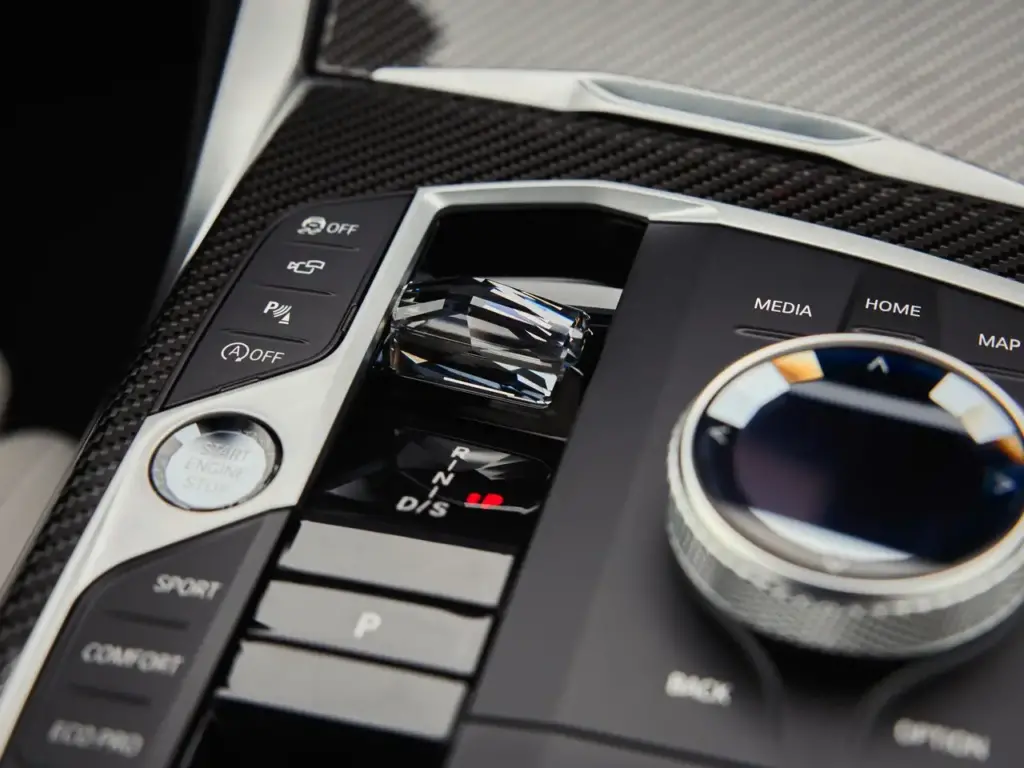
Exterior Style & Design Elements
2023 BMW 4-Series Styling Analysis
The 2023 model year maintains the controversial yet distinctive kidney grille design that has become synonymous with the current generation 4-Series[2]. While polarizing among enthusiasts and traditional BMW buyers, this bold design successfully differentiates the 4-Series from competitors and creates strong road presence.
The exterior design emphasizes athletic proportions with a long hood, short deck, and muscular stance that conveys performance intentions[2]. LED headlight technology provides improved illumination while maintaining aggressive aesthetic character that distinguishes the coupe from BMW’s sedan offerings.
Distinctive Design Elements:
- Prominent kidney grille creating bold front-end identity
- LED headlight technology with distinctive daytime running light signature
- Coupe proportions emphasizing athletic stance and low roofline
- Character lines extending from front to rear highlighting vehicle length
- Aerodynamic enhancements including active grille shutters for efficiency
- M Sport styling cues on performance variants with body kit elements
The design polarization means buyers should experience the vehicle in person to ensure long-term aesthetic satisfaction, as the distinctive styling significantly impacts ownership enjoyment.
Available Color Options & Customization
BMW offers an extensive palette for the 2023 4-Series that balances classic luxury choices with distinctive options for personalization[2]. Color selection impacts both initial appeal and long-term resale value considerations.
| Color Category | Options Available | Resale Impact |
|---|---|---|
| Standard colors | Alpine White (most popular choice) | Excellent resale value |
| Metallic options | Arctic Race Blue, Storm Bay, Mineral Grey | Good resale value |
| Premium metallics | Tanzanite Blue II, San Remo Green | Above average resale |
| Individual colors | Custom BMW Individual options | Variable resale impact |
Alpine White remains the most popular choice among American buyers, offering timeless appeal and strong resale value across all regional markets. Metallic finishes add sophistication while maintaining broad market appeal for future resale[2].
Body Style Design Characteristics
Each body style variant offers distinct visual and practical advantages that cater to different buyer priorities and lifestyle requirements[2]. Understanding these differences helps buyers select configurations that align with their needs and preferences.
Coupe Design Features:
- Traditional 2-door layout maximizing style impact and visual proportions
- Sleekest roofline creating most dramatic side profile silhouette
- Optimal structural rigidity for enhanced driving dynamics and handling
- Classic sports car appeal attracting enthusiasts and style-conscious buyers
Convertible Modifications:
- Power soft-top mechanism with quick operation and compact stowage
- Structural reinforcements maintaining chassis rigidity during open driving
- Integrated wind deflectors reducing cabin turbulence at highway speeds
- Enhanced weather sealing protecting interior during inclement weather
Gran Coupe Practicality:
- Four-door accessibility improving rear passenger entry and exit
- Fastback styling maintaining coupe aesthetic while adding functionality
- Enhanced cargo access through hatchback-style rear opening design
- Family-friendly proportions without sacrificing distinctive coupe character
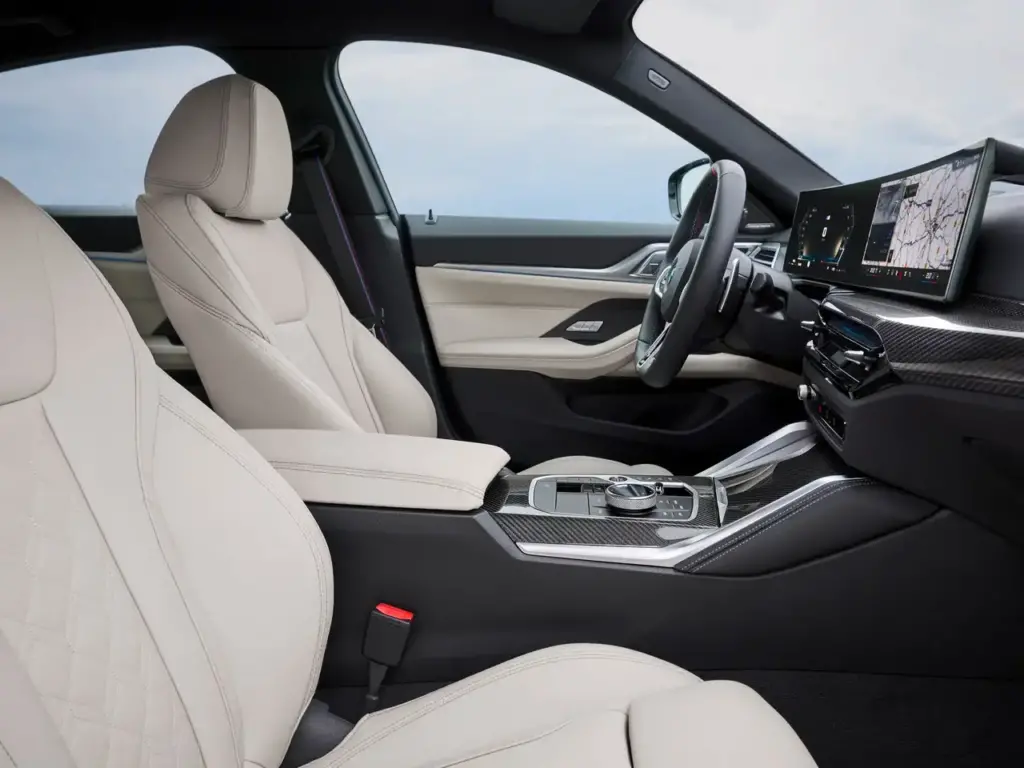
2023 BMW 4-Series Pricing & Value Analysis
New MSRP Pricing Structure (2023 Reference)
The original 2023 BMW 4-Series pricing established value benchmarks that inform current used market positioning and help buyers understand depreciation patterns[2]. These reference prices provide context for evaluating used car values and negotiating purchase decisions.
| Configuration | Original MSRP | Current Used Range | Depreciation % |
|---|---|---|---|
| 430i Coupe RWD | $48,395 | $31,000-$38,000 | 22-36% |
| 430i xDrive Coupe | $50,395 | $33,000-$40,000 | 21-35% |
| 430i Gran Coupe RWD | $50,895 | $33,000-$41,000 | 19-35% |
| M440i Coupe RWD | $60,345 | $42,000-$50,000 | 17-30% |
| M440i xDrive variants | $62,345+ | $44,000-$53,000 | 15-29% |
The M440i variants show stronger value retention due to their performance appeal and lower production volumes, while base 430i models experience typical luxury vehicle depreciation patterns[1].
Current Used Market Analysis & Values
The used 2023 BMW 4-Series market demonstrates healthy availability with pricing influenced by mileage, condition, service history, and regional demand patterns[1]. Current market conditions favor buyers due to increased inventory and normalized pricing after pandemic-era disruptions.
Market Analysis by Mileage:
- Low mileage (under 15,000 miles): Premium pricing within 15-20% of original MSRP
- Moderate mileage (15,000-30,000 miles): Mainstream used pricing with 25-35% depreciation
- Higher mileage (30,000+ miles): Value pricing with 35-45% depreciation from original cost
- Certified Pre-Owned: 5-10% premium over similar non-certified examples with warranty benefits
Regional variations show stronger pricing in luxury markets like California and Northeast metros, while value markets in the Midwest and South offer better negotiating opportunities for qualified buyers[1].
Total Cost of Ownership Considerations
Understanding comprehensive ownership costs helps buyers make informed decisions about 2023 BMW 4-Series purchase and long-term financial planning[3]. These costs extend beyond purchase price to include maintenance, insurance, fuel, and depreciation factors.
Annual Ownership Cost Breakdown:
- Insurance premiums: $1,800-$2,400 annually (15-25% above mainstream vehicles)
- Maintenance expenses: $1,200-$2,000 annually depending on service location
- Premium fuel costs: $300-$500 annually above regular gasoline vehicles
- Registration and taxes: Variable by state with luxury vehicle rates applying
- Extended warranty: $2,000-$4,000 for comprehensive coverage beyond factory warranty
BMW’s Certified Pre-Owned program provides additional warranty coverage and peace of mind, though it commands premium pricing compared to non-certified examples. Similar ownership patterns are documented by automotive experts at Autvex for related BMW models.
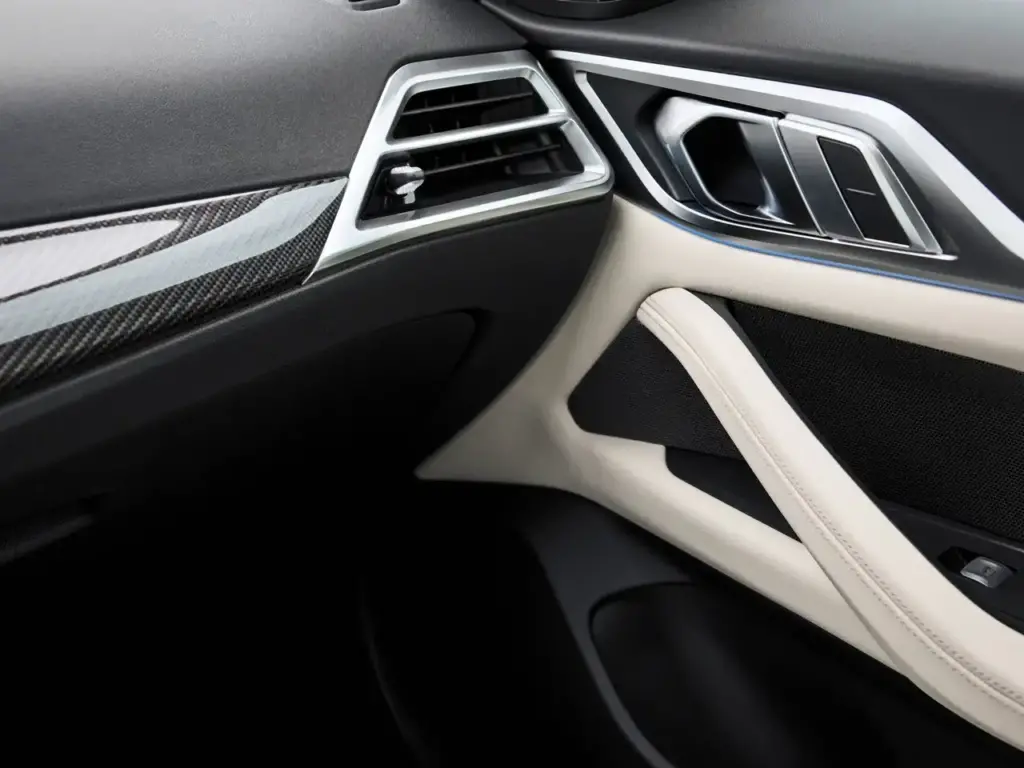
Safety Features & Driver Assistance Technology
Standard Safety Equipment
The 2023 BMW 4-Series includes comprehensive safety systems as standard equipment, reflecting modern safety expectations and regulatory compliance[2]. These features provide both passive protection and active accident avoidance capabilities for American driving conditions.
Standard Safety System Suite:
- Forward collision warning with pedestrian and cyclist detection capability
- Automatic emergency braking with low-speed collision mitigation
- Lane departure warning with active lane-keeping assistance intervention
- Blind spot monitoring with rear cross-traffic alert during reversing
- Parking sensors front and rear with audio and visual feedback systems
- Backup camera with trajectory guidance and distance markers[2]
These systems operate seamlessly in background monitoring, activating when potential hazards are detected while maintaining BMW’s focus on driver engagement and control.
Available Advanced Safety Systems
Premium safety features enhance the standard suite through optional packages that provide semi-autonomous capabilities for highway driving and parking scenarios[2]. These systems represent mature technology with proven effectiveness in real-world conditions.
| Advanced Safety Feature | Driver Assistance Package | Annual Benefit |
|---|---|---|
| Adaptive cruise control | $1,700 package option | Reduced driver fatigue |
| Traffic jam assistant | Included in package | Low-speed automation |
| BMW Parking Assistant Plus | Included in package | Automated parking capability |
| Lane change assistance | Included in package | Highway safety enhancement |
| Active protection system | Standard equipment | Pre-collision preparation[2] |
These systems work together to provide comprehensive protection while maintaining BMW’s philosophy of driver involvement and ultimate control over vehicle operation.
Crash Test Ratings & Real-World Safety
The 2023 BMW 4-Series achieved strong safety performance in standardized testing, though buyers should understand that coupe body styles typically offer less protection than sedan equivalents due to structural differences[3]. Real-world safety depends on both design and driver behavior patterns.
Safety Performance Summary:
- NHTSA overall rating: 5 stars for tested configurations
- IIHS awards: Top Safety Pick qualification when properly equipped
- Consumer Reports assessment: Above average safety performance predicted
- Insurance claims data: Moderate claim frequency reflecting driver demographics[3]
The vehicle’s safety systems have proven effective in reducing accident severity and frequency, though luxury performance vehicles typically show higher claim costs due to repair complexity and parts pricing.
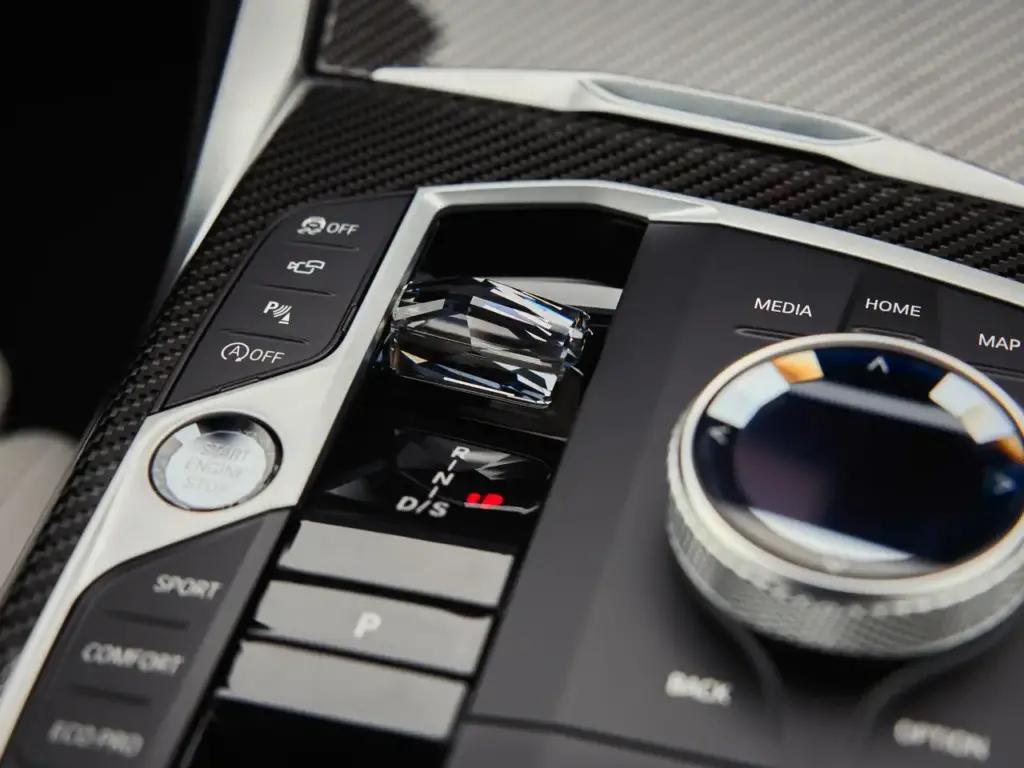
2023 BMW 4-Series vs Key Competitors
vs Audi A5 Sportback Detailed Comparison
The Audi A5 represents the 4-Series’ most direct competitor in the luxury coupe segment, offering similar performance credentials and luxury appointments with different philosophical approaches[4]. Both vehicles target affluent buyers seeking style and driving engagement over maximum practicality.
| Comparison Factor | BMW 4-Series 430i | Audi A5 45 TFSI |
|---|---|---|
| Starting price (used) | $31,000-$38,000 | $35,000-$42,000 |
| Engine performance | 255 HP / 295 lb-ft | 261 HP / 273 lb-ft |
| 0-60 mph acceleration | 5.5 seconds | 5.6 seconds[4] |
| Fuel economy | 28 combined MPG | 29 combined MPG |
| Cargo capacity | 12 cubic feet | 13.1 cubic feet |
| Technology system | iDrive 7 with 8.8″ display | MMI with 12.3″ display |
| Reliability rating | 2.5/5 (RepairPal) | 3.0/5 (RepairPal) |
The BMW offers more engaging driving dynamics and distinctive styling, while the Audi provides superior build quality and more conservative design that may age better over time[4].
vs Mercedes-Benz CLE-Class Analysis
The Mercedes-Benz CLE-Class emphasizes luxury comfort and refinement over pure driving dynamics, creating distinct positioning differences from the BMW’s sport-oriented approach[4]. American buyers often cross-shop these models despite their different personalities.
Key Competitive Differences:
- Interior luxury: Mercedes CLE provides superior material quality and cabin refinement
- Driving dynamics: BMW delivers more engaging steering feel and handling precision
- Technology integration: Mercedes offers more intuitive user interface design
- Ride comfort: Mercedes prioritizes highway isolation over sporty handling[4]
- Pricing structure: Mercedes commands 10-15% premium over comparable BMW configurations
- Resale values: Both maintain similar depreciation patterns in luxury coupe segment
vs Genesis G70 Coupe Value Evaluation
The Genesis G70 offers compelling value proposition with luxury features and strong performance at significantly lower prices than German competitors[4]. However, the brand faces challenges with dealer network coverage and resale value uncertainty.
Genesis G70 Competitive Advantages:
- Value proposition: $8,000-$12,000 lower starting prices than BMW 4-Series
- Warranty coverage: 10-year/100,000-mile powertrain vs BMW’s 4-year/50,000-mile
- Standard equipment: More luxury features included in base pricing
- Performance capability: 300 HP base engine exceeds BMW 430i output[4]
- Interior space: Superior rear passenger accommodation and cargo capacity
BMW 4-Series Advantages:
- Brand prestige: Established luxury reputation and recognition
- Dealer network: Comprehensive service coverage nationwide
- Resale values: Stronger long-term value retention (52.4% vs 44.4% depreciation)[4]
- Driving dynamics: More engaging handling and steering characteristics
- Technology maturity: Proven iDrive system with established functionality
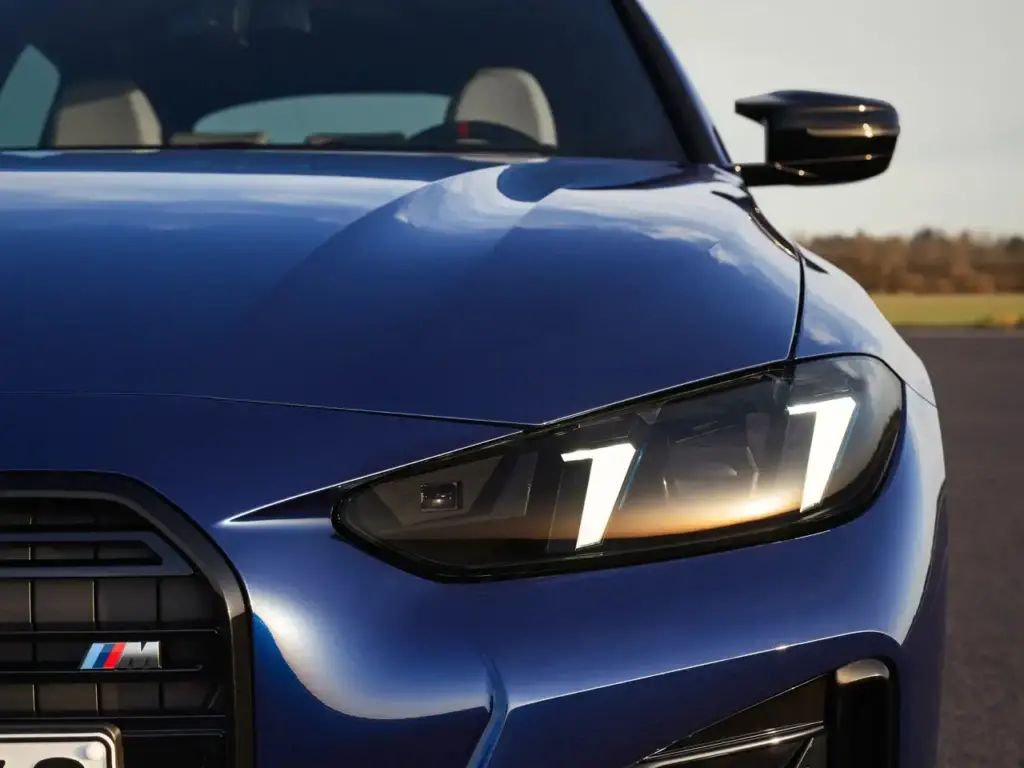
Should You Buy a 2023 BMW 4-Series in 2025?
Best Use Cases & Ideal Buyers
The 2023 BMW 4-Series excels in specific scenarios that align with its design priorities and performance capabilities[2]. Understanding these optimal use cases helps potential buyers determine whether the vehicle matches their lifestyle requirements and driving expectations.
Optimal Ownership Scenarios:
- Style-conscious professionals: Excellent for individuals prioritizing distinctive appearance and luxury brand image
- Weekend driving enthusiasts: Strong performance capabilities for spirited driving on scenic routes
- Empty nester couples: Ideal for households downsizing from family vehicles while maintaining luxury standards
- Secondary vehicle role: Perfect complement to practical SUV or sedan for recreational driving
- Urban commuters: Well-suited for city driving with comfortable seating and advanced technology
The vehicle particularly appeals to buyers who value BMW’s driving dynamics philosophy, appreciate distinctive styling, and accept space limitations in exchange for coupe aesthetics and performance character[2].
Potential Drawbacks & Known Issues
Despite its strengths, the 2023 BMW 4-Series presents limitations that may affect certain buyer segments[3]. Understanding these drawbacks ensures informed purchasing decisions that align with realistic expectations.
Key Ownership Limitations:
- Rear seat space constraints: Significantly limited headroom and legroom restrict adult passenger comfort
- Controversial styling impact: Polarizing kidney grille design may affect long-term aesthetic satisfaction
- Premium maintenance requirements: BMW service costs exceed mainstream brands by 25-35%
- Technology aging concerns: iDrive 7 system lacks features found in newer iDrive 8 implementations
- Fuel cost considerations: Premium gasoline requirement increases operating expenses[3]
- Recall history: 2 NHTSA recalls indicate potential quality control issues
Common Reliability Concerns:
- Electrical system issues: Some owners report infotainment glitches and sensor malfunctions
- Cooling system problems: Potential issues with water pumps and thermostats in high-mileage examples
- Suspension wear: M Sport suspension components may require earlier replacement than standard systems
Used Car Buying Guide & Market Timing
Current market conditions present opportunities for qualified buyers seeking 2023 BMW 4-Series models at reasonable prices[1]. Understanding market dynamics and inspection priorities helps ensure successful purchases and long-term satisfaction.
Pre-Purchase Inspection Priorities:
- Service history verification: Complete BMW dealer maintenance records preferred
- Accident history check: Clean AutoCheck or Carfax reports essential for value retention
- Mechanical inspection: Professional evaluation of engine, transmission, and suspension components
- Technology functionality: Test all infotainment, safety, and convenience systems thoroughly
- Warranty status: Understand remaining factory coverage and extended warranty options
Optimal Purchase Timing:
- Current market conditions: Inventory levels normalized with competitive pricing available
- Seasonal considerations: Best deals typically available October-February periods
- Model year positioning: 2023 represents sweet spot between modern features and depreciation
- Regional variations: Midwest and Southern markets often offer better value than coastal areas
Similar purchasing patterns and considerations apply to related BMW models, as documented by automotive experts who track luxury vehicle market trends at Autvex.
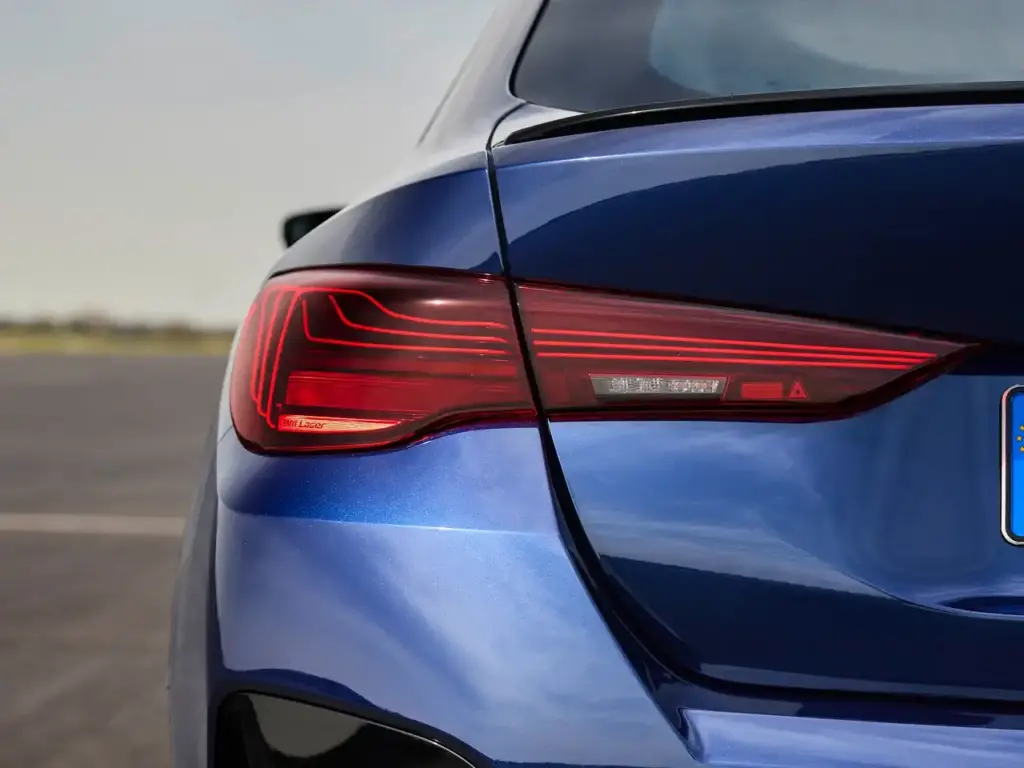
Key Takeaways
- The 2023 BMW 4-Series offers mature reliability with three years of production data showing average dependability and established service procedures, making it safer than first-year models
- Used market pricing provides excellent value with depreciation of 25-35% from original MSRP, creating opportunities for luxury coupe ownership at mainstream pricing levels
- Genesis G70 offers superior overall value with lower prices, better warranty coverage, and higher standard equipment levels, though BMW maintains advantages in brand prestige and resale values
- Controversial styling requires personal evaluation as the distinctive kidney grille design significantly impacts long-term ownership satisfaction and may affect future resale appeal
- Space limitations restrict family utility making the 4-Series best suited for singles, couples, or buyers seeking a secondary recreational vehicle rather than primary family transportation
- Premium ownership costs demand budget planning including higher insurance, maintenance, and fuel expenses that can add $3,000-$4,000 annually compared to mainstream vehicles
- Technology system shows age compared to newer iDrive 8 implementations, though iDrive 7 provides proven functionality and comprehensive feature sets for current needs
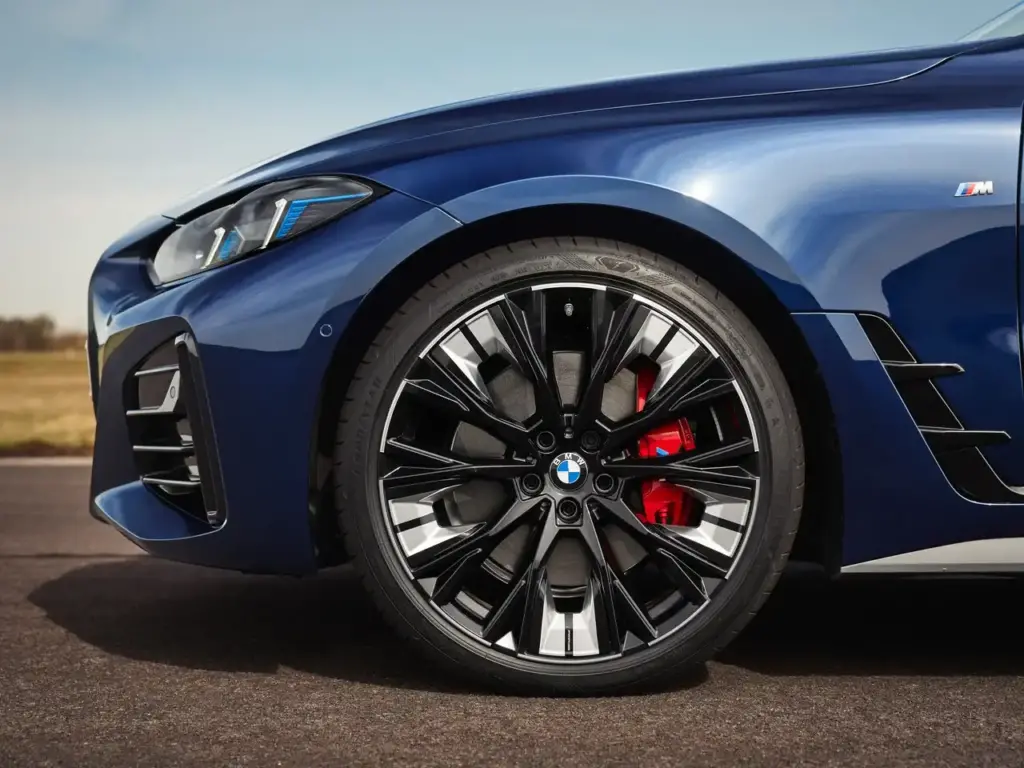
FAQs
What’s the difference between 2023 BMW 430i and M440i?
The 430i features a 255-horsepower 2.0-liter turbocharged four-cylinder engine achieving 28 mpg combined, while the M440i uses a 382-horsepower 3.0-liter turbocharged inline-six with 26 mpg combined[2]. The M440i includes standard M Sport suspension, performance tires, and enhanced interior materials, typically commanding $10,000-$15,000 premium in the used market.
How reliable is the 2023 BMW 4-Series?
Consumer Reports predicts average reliability with J.D. Power giving the 2023 model an 85/100 predicted reliability score[3]. RepairPal rates BMW 4-Series reliability at 2.5/5 stars, ranking 53rd out of 68 luxury midsize cars. The model has experienced 2 NHTSA recalls, though most issues are addressed under BMW’s 4-year/50,000-mile warranty coverage.
Should I buy a 2023 BMW 4-Series used or wait for newer models?
The 2023 model represents optimal value with mature technology, proven reliability patterns, and significant depreciation creating affordability[1]. Newer 2024-2025 models offer updated iDrive 8 technology but command higher prices. For value-conscious buyers, 2023 provides modern features at substantial savings without major technological compromises.
What are the biggest problems with 2023 BMW 4-Series?
Common issues include controversial styling acceptance, limited rear seat space, premium maintenance costs, and some electrical system glitches[3]. The model has 2 NHTSA recalls addressing specific component issues. Cooling system components and suspension wear may require attention in higher-mileage examples, typical of German luxury vehicles.
How does the 2023 4-Series compare to the 3-Series sedan?
The 4-Series shares the 3-Series platform but sacrifices rear passenger space and cargo capacity for coupe styling and sportier handling dynamics[2]. Both offer identical powertrains and technology, though the 4-Series features retuned suspension and more aggressive styling. The 3-Series provides better daily practicality, while the 4-Series emphasizes style and driving engagement.
Is the 2023 BMW 4-Series good for daily driving?
Yes, the 4-Series provides comfortable daily driving with supportive front seats, refined ride quality, and comprehensive technology features[2]. However, rear seat limitations restrict passenger utility, and the coupe design may complicate loading larger items. The vehicle excels for commuters prioritizing style and driving enjoyment over maximum practicality.
What’s the best 2023 BMW 4-Series configuration to buy used?
The 430i xDrive Coupe with Premium Package offers optimal balance of features, all-weather capability, and value retention[1]. This configuration provides essential luxury amenities without the M440i’s performance premium, making it accessible to more buyers while maintaining strong resale appeal. Gran Coupe variants add practicality for minimal price increases.
How much should I pay for a used 2023 BMW 4-Series?
Current market prices range from $31,000-$38,000 for 430i models and $42,000-$53,000 for M440i variants, depending on mileage and condition[1]. Low-mileage examples command premium pricing, while moderate-mileage vehicles (15,000-30,000 miles) offer best value. Certified Pre-Owned models add $2,000-$4,000 but include extended warranty coverage and thorough inspections.
References
- CarGurus. (2025). Used BMW 4 Series pricing trends. https://www.cargurus.com/research/price-trends/BMW-4-Series-d2244
- Car and Driver. (2022). 2023 BMW 4-Series Review, Pricing, and Specs. https://www.caranddriver.com/bmw/4-series-2023
- Consumer Reports. (2023). 2023 BMW 4 Series Reliability. https://www.consumerreports.org/cars/bmw/4-series/2023/reliability/
- iSeeCars. (2024). BMW 4 Series vs. Genesis G70. https://www.iseecars.com/compare/bmw-4_series-vs-genesis-g70

I am a senior automotive analyst at Autvex. Expert vehicle evaluations, in-depth reviews, and objective analysis helping readers make informed automotive decisions with years of industry experience.

